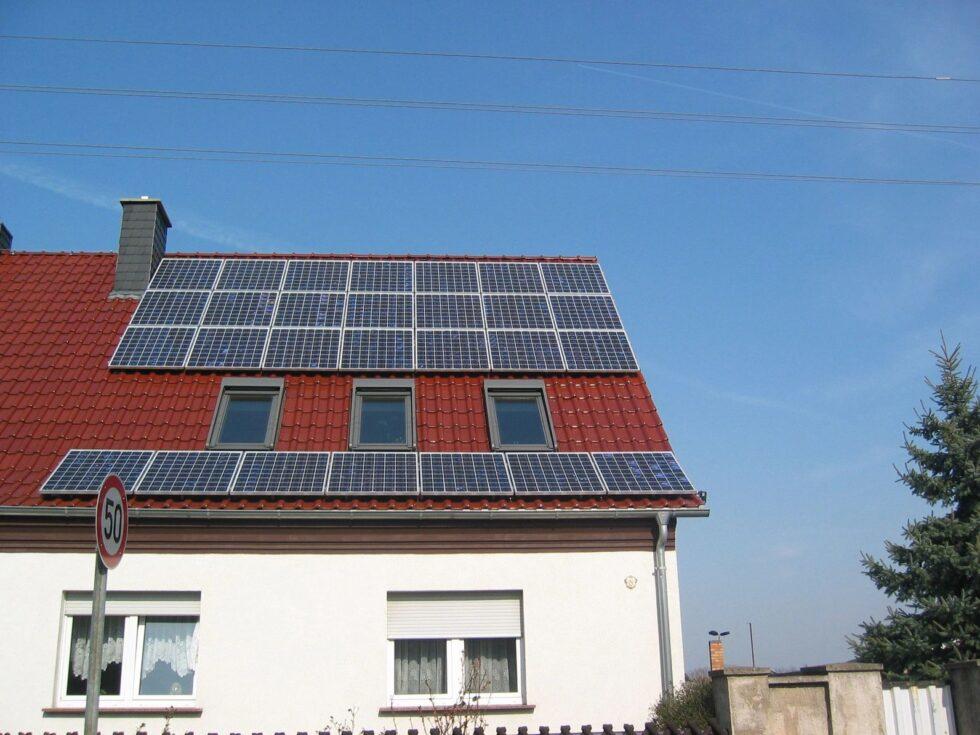
Caption
The state Public Service Commission held firm Tuesday on a 5,000-customer cap on Georgia Power’s rooftop solar program.
Credit: Courtesy of Capitol Beat

The state Public Service Commission held firm Tuesday on a 5,000-customer cap on Georgia Power’s rooftop solar program.
ATLANTA — The state Public Service Commission (PSC) approved a $1.8 billion rate increase requested by Georgia Power Tuesday that embraced most of an agreement between the agency’s staff and the company presented last week.
Commissioners slightly lowered the upper limit on profits Georgia Power will be allowed to keep and sweetened incentives to be offered to encourage the development of solar energy and the deployment of electric vehicle charging stations. But the PSC stopped short of more far-reaching changes proposed by Commissioner Lauren “Bubba” McDonald, who provided the lone opposition in Tuesday’s 4-1 vote.
The $1.8 billion rate hike — down from Georgia Power’s original request of $2.9 billion — will raise the average residential customer’s bill by $3.60 per month starting Jan. 1. That’s down significantly from the $14.90 monthly increase customers would have seen next year under the original front-loaded three-year request the company proposed in June.
Instead, customer rates will go up by 4.5% in 2024 and again in 2025 under the agreement between Georgia Power and the PSC’s Public Interest Advocacy Staff.
The commission set the return on equity (ROE) for the utility at the staff-recommended level of 10.5%, down from the 11% the company sought.
But commission Chair Tricia Pridemore amended the upper limit of the “earnings band” — the range within which the utility can earn profits for its shareholders without sharing them with customers — to 11.9%, slightly below the 12% Georgia Power requested and currently receives. The PSC staff had recommended reducing the upper limit to 11.5%.
“In the current environment of increasing interest rates and record inflation, it is important to hold the company close to current band levels in order to maintain the company’s financial integrity and the efficiency incentives to ultimately benefit customers,” Pridemore said.
The commission defeated an alternative amendment McDonald proposed to follow the staff’s suggestion and set the upper limit of the earnings band at 11.5%.
“All those revenues inside the band go to the company, not the ratepayer,” McDonald said.
The commission did approve one customer-friendly amendment Pridemore introduced increasing the percentage of revenues the company brings in above the earnings band that are refunded directly to ratepayers from the 10% contained in the agreement to 40%.
Commissioner Fitz Johnson proposed an amendment to provide 65% of the $81 million Georgia Power had sought for EV charging stations. The agreement had cut that allocation to just 10% of the original request.
The PSC also passed another Johnson amendment to charge residential customers participating in Georgia Power’s community solar program $24 for every “block” of power generated and charge commercial customers $25 per block. That’s less than Georgia Power wanted but more than the PSC staff recommended.
“Pricing at this level will allow participating customers the opportunity to support the development of clean energy as well as the opportunity to realize fuel savings,” Johnson said.
Finally, the PSC approved an amendment proposed by Commissioner Jason Shaw to increase payments to participants in Georgia Power’s rooftop solar program for the electricity they generate beyond what they use.
“This change will improve the economics of rooftop solar for [participating] customers and encourage the adoption of more solar in Georgia,” Shaw said.
However, the commission did not lift the current 5,000-customer cap on the utility’s pilot rooftop solar program, which solar industry advocates have complained threatens the financial health of their business.
Environmental groups also criticized the PSC for not expanding the rooftop solar program, particularly when Georgia Power customers will face a series of other rate increases over the next couple of years.
“Georgia Power customers should brace themselves because electric bills are on the rise,” said Jill Kysor, senior attorney in the Southern Environmental Law Center’s Georgia office. “Customers need more options to control escalating costs, like access to rooftop solar. By failing to expand [that] program, the commission missed an opportunity to let folks lower bills and to create new local Georgia jobs.”
Chris Womack, Georgia Power’s chairman, president, and CEO, said in September the company expects to file a request in February for unrecovered fuel costs to account for the volatility of the energy market resulting from factors including rising natural gas prices and the impacts of the war in Ukraine.
The utility also will be looking to the PSC to recover the costs of bringing into service the two new nuclear reactors being built at Plant Vogtle.
Womack said Tuesday the commission’s decision struck a good balance between Georgia Power’s needs and those of its customers.
“Since the start of the rate request process, we asked the PSC to set rates at a level that supports the essential, critical investments needed to meet our state’s evolving energy needs,” he said. “Today’s decision does that while also balancing affordability needs for customers.”
This story is available through a news partnership with Capitol Beat News Service, a project of the Georgia Press Educational Foundation.
